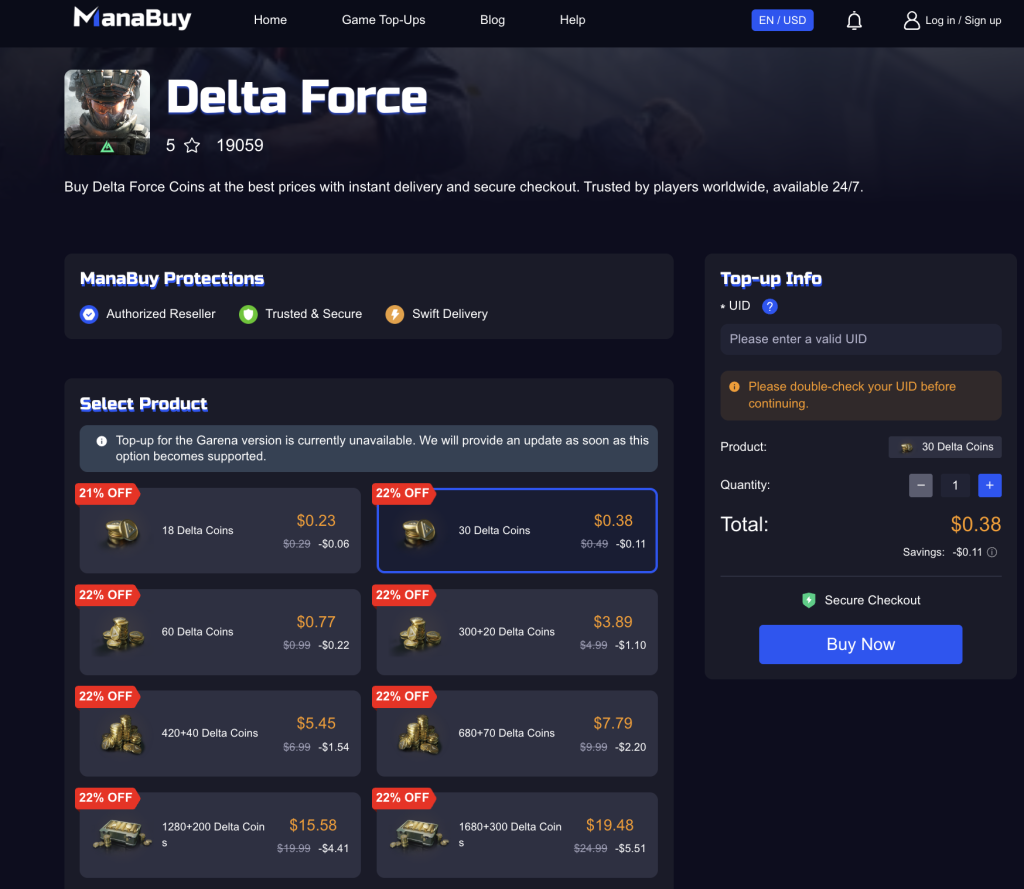I’ve spent the past few weeks diving deep into Delta Force, and while it shares a lot of DNA with other tactical shooters, there are a few things that make it stand out—and a few habits that really helped me improve. I’m not writing this as a pro or guide-maker, just as someone who logs in most evenings, wins some, loses some, and tries to get better.
Tactical Patience Actually Wins Fights
One of the most important lessons I learned early was to slow down. Like many fast-paced shooters, it’s easy to fall into a run-and-gun rhythm. But Delta Force rewards careful positioning and communication way more than raw aim. I started doing better once I stopped treating every match like a sprint.
Holding angles, using audio cues, and watching the minimap gave me way more value than rushing into every encounter. I also realized that pinging enemy positions—even in solo queue—improves team success. Not everyone responds, but some do, and that’s often enough.
Sensitivity Tweaks Made Me Noticeably More Consistent
This one is more technical, but worth mentioning. I’d been using default settings since day one. Then I took an hour to really tweak my mouse sensitivity and FOV, testing in a few custom matches. The result? Fewer random flicks, more stable tracking, and a strange but noticeable boost in confidence. Aiming felt less reactive and more intentional.
It sounds basic, but dialing in your controls is like sharpening a blunt tool—it’s the same weapon, but everything works better.
Team Roles Aren’t Just Labels
I used to treat roles as loose suggestions. If I wanted to rush mid with a sniper, I’d do it. But the more I played, the more I saw that team structure mattered. The player running support actually controls the pace more than I expected, especially when pushing objectives.
Now I try to read the team at the start of each match. If we’re lacking control or vision, I’ll adjust. I don’t always love the role I take, but matches go smoother when someone fills the gap—and honestly, I win more when the team feels balanced.
About Topping Up—Faster and Slightly Cheaper with Manabuy
Let’s talk about something outside the match itself. I don’t spend much on games, but Delta Force has a decent skin system and unlockable gear I actually like using. The first time I bought credits, I used the in-game shop, but it felt a little clunky—redirects, delays, and some extra fees I hadn’t expected.
After someone in my Discord mentioned it, I tried this Delta Force top-up option on Manabuy. It’s straightforward: I enter my player ID, choose how much to recharge, and pay like I would anywhere else. The credits show up quickly, and the final cost was slightly lower than what I saw in the official flow. Not a massive discount, but enough to notice—especially if you top up occasionally.

It felt more efficient, and I’ve used it since then whenever I want to avoid breaking my session’s rhythm.
A Few Unexpected Wins
Outside of performance and top-ups, a few smaller habits helped too. I started reviewing my own replays—not all of them, but just one or two from bad games. Seeing where I exposed myself or wasted cooldowns gave me faster feedback than trying to guess in real-time.
I also switched to push-to-talk. It made my comms more intentional, and weirdly, made me listen more. That one change helped me pick up better callouts and understand the flow of the match more clearly.
Final Thoughts
I’m still not amazing at Delta Force, but I’ve gone from feeling stuck to actually enjoying the improvement curve. Between tweaking settings, being more mindful of team structure, and finding a simpler way to handle recharges, the overall experience feels smoother.
And when something as routine as topping up can be quicker and more affordable—thanks to platforms like Manabuy—it makes the rest of the gameplay easier to stay focused on. No delays, no extra windows, just more time in the game and less around it.


